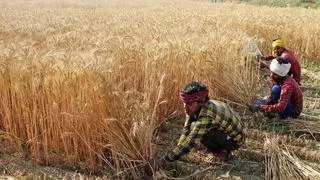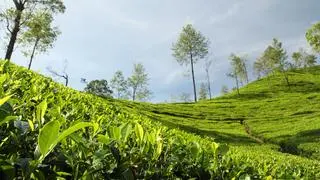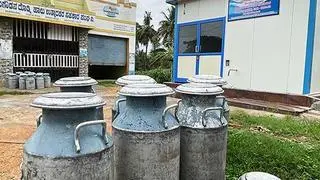The Commission for Agricultural Costs and Prices (CACP), the national crop-advisory body, has suggested creating mass awareness among farmers, especially paddy growers, on sanitary and phyto-sanitary measures — a move that will help comply with global food safety and quality standards. The suggestion is part of CACP’s non-price policy recommendations.
Rice is a major agri export commodity from India. Regulations and standards pertaining to the safety and quality of agri produce have become stringent and are a major determinant in trading opportunities. These constraints on rice exports from India are likely to rise in the near future as West Asian countries like Oman, Egypt, Jordan, Saudi Arabia and the UAE have adopted pesticide residue norms for imported rice at par with European Union, CACP said.
Low awareness
Since there is relatively low awareness and know-how to rightly adopt safety measures among the small and marginal farmers across the value chain, the Commission recommends that there is a need to organise a mass awareness campaign to sensitize farmers about the sanitary and phyto-sanitary measures and good agricultural practices (GAP) so that they can exercise due diligence while growing crops. This helps them to comply with the regulations that ensure food quality, safety and environmental standards.
India has been the largest exporter of rice for the past few years with shipments of the cereal registering good growth year-on-year. Based on the CACP’s recommendation, the Centre announced a ₹100 increase in minimum support price to ₹2,040 per quintal for the 2022-23 crop year.
Further, the CACP said although rice is being grown over vast areas of India, the physical and agro-climatic requirements for growing rice are confined to certain areas of the country.
Pruning area in N-W India
However, in most of these regions in the East such as Odisha, West Bengal, Chhattisgarh, Jharkhand, the North-Eastern states and the South-West Coast, the area under paddy is relatively low, which is more suitable for paddy, compared with the North-Western plains. Hence, there is a need to shift rice cultivation from some of the States/regions which are not suitable for rice. Therefore, the Commission recommended that appropriate policy measures should be initiated to promote paddy cultivation in suitable areas and reduce the acreage in Haryana, Punjab and Uttar Pradesh.
Also, to ensure successful implementation of schemes, more attention should be given on creating awareness about prevailing MSP, FAQ (Fair average quality) standards, system of procurement, payment mechanism it said. It would help in ensuring better prices to farmers, and adoption of modern technologies in farming. Farmers need to be trained about FAQ norms and the post-harvest handling methods, access to infrastructure to minimise post harvest losses and improve quality to get better prices, the CACP observed.









Comments
Comments have to be in English, and in full sentences. They cannot be abusive or personal. Please abide by our community guidelines for posting your comments.
We have migrated to a new commenting platform. If you are already a registered user of TheHindu Businessline and logged in, you may continue to engage with our articles. If you do not have an account please register and login to post comments. Users can access their older comments by logging into their accounts on Vuukle.